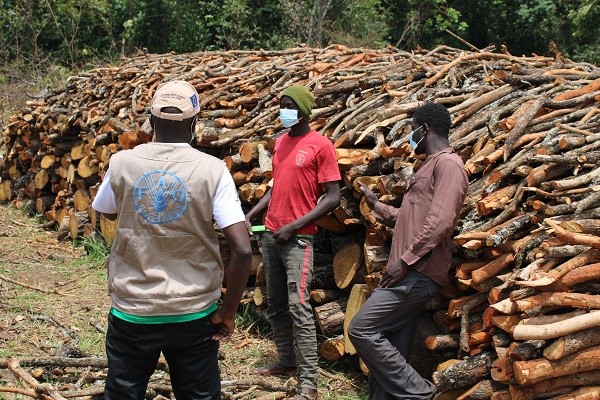By Jurugo Emmanuel Ogasto
Authorities in Adjumani district local government have expressed concerns over the sustainability of the community woodlots established with the financial support from government and other development partners in the district aimed at addressing climate related concerns.
According to the leaders, many of the groups always target the money after which they will never bother to maintain the trees.
The government has been asked to change its systems of operation through supporting individuals who have the capacities to undertake such projects other than imposing on the less privileged people.
Mr. Kaijuka Richard Arka, the vice chairperson Adjumani district council said government should look out for people who are self-sustaining for better result in the community.
“The people who are planting the trees come together in a group particularly because of the money, but what happens after the money is conflict among group members. It may be over the trees when they have matured or land which was offered by an individual.
The conflicts are because the members have different interest,” Mr. Kaijuka said.
“Our move here is for instance in other projects, those who seat in Kampala making documentations for projects sometimes don’t reason up to here. For example you give Mr. X a cow when he does not even have a chicken, cannot buy a soap but you give him a cow when he doesn’t have money to buy a rope for tying but you give him a cow instead of giving it Mr. Y who has the capacity to take care of the cow. That’s why I’m saying those seating in Kampala do not reason the same level we in the local government are reasoning,” he Kaijuka explained.
He stated that some of the woodlot projects were established under Development Response to Displacement Impact Project (DRDIP) with each group receiving UGX: 50 million.
Meanwhile, Mr. Gulamu Abraham, Adjumani district DRDIP desk officer attributed the failure to maintain other woodlots to relaxation of some group members especially after exhausting project funds.
“Because of these challenges we had world mission who were here on pre-identification for next phase, that apart from group approach, we should also look at individual approaches through use (ing) individuals who have land but the community shall be used to provide labour, and at the end of the day benefits are shared at certain agreed percentage,” Mr. Gulamu said.
For his part, Mr. Akuba Charles, the Adjumani district internal auditor said there is high risk of not getting value for money in the current woodlot projects in Adjumani district saying the responsibility of government is to open up the land, plant trees and weed it for only two times, and the rest of period for the trees to sustain itself, to develop better roots and go through the dry season successful entirely lies in the hands of project beneficiaries.
He however added that many of the woodlots in the area have disappeared due to poor attitude in maintaining the sites. “Our people have run away from the element of voluntarism because we have triggered their minds in some of these things. As a result I’m seeing the risks that as we continue to implement these projects in the way we are implementing, we may have only 20% successful woodlots because when the year ends money gets over and the community get disorganized leaving it to few members making it hard to sustain the projects”
Mr. Akuba now appealed for individual support for easy sustainability of the projects at community level which currently some nongovernmental organizations have taken up and it’s yielding fruits in other areas in the district.
Mr. Giyaya Charles, the district natural resource officer however called for massive community outreaches in relation to building the capacities of the community members to sustain the said the projects.
He however pointed lack of transport means for extension workers to run their daily activities as foot solider of government at community level. “We are going to support the communities. We have already started that process through national forest authority (NFA) and we have complied a report to find out which groups needs support so that we are able to submit to NFA for gap filling,” he said.




